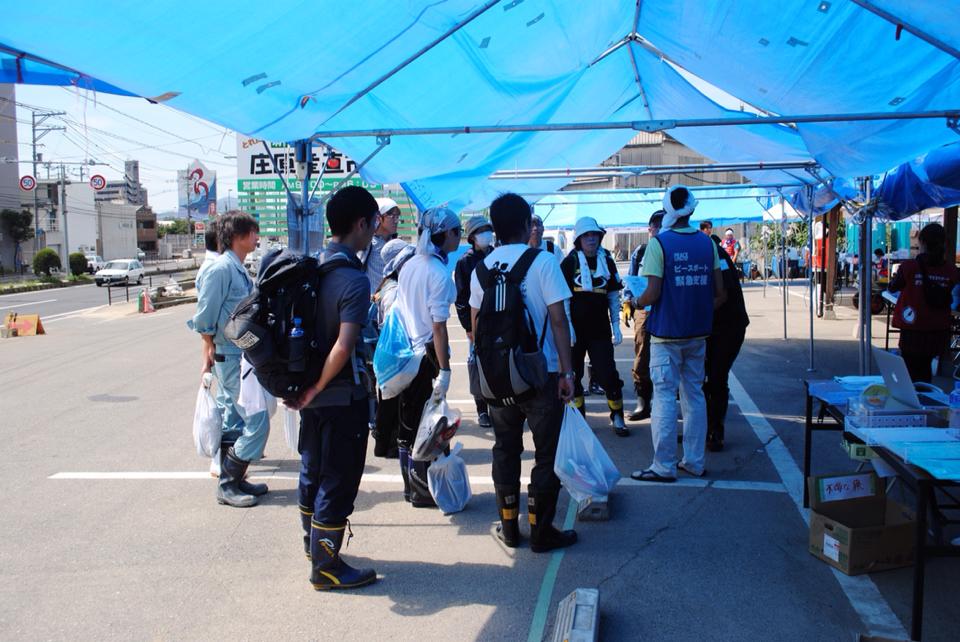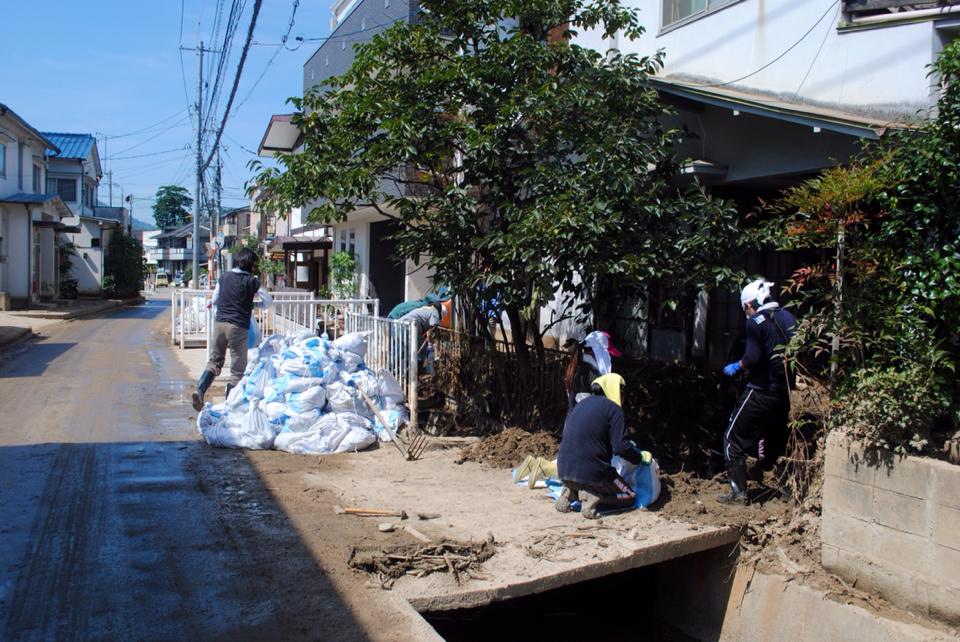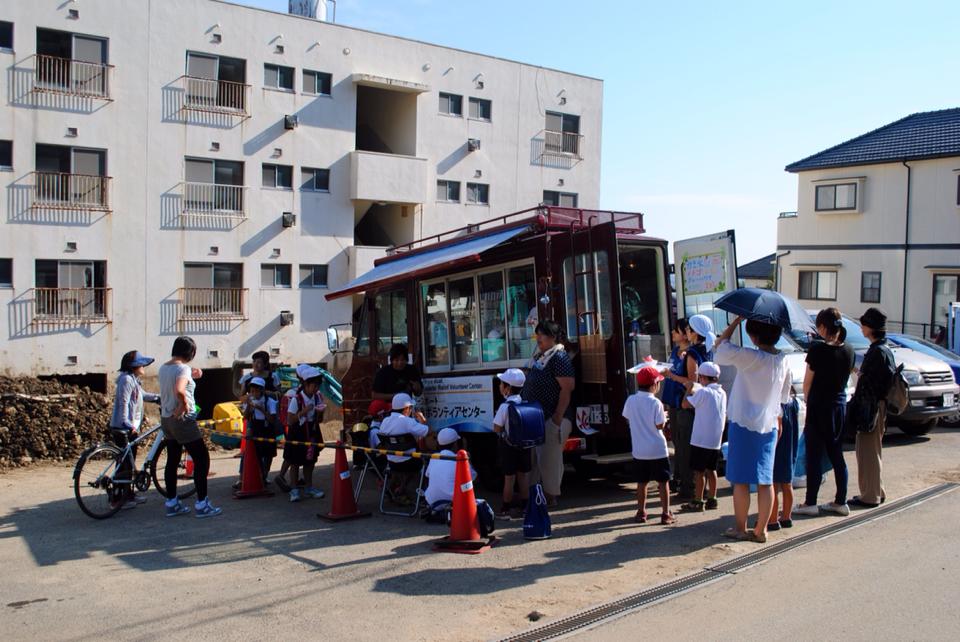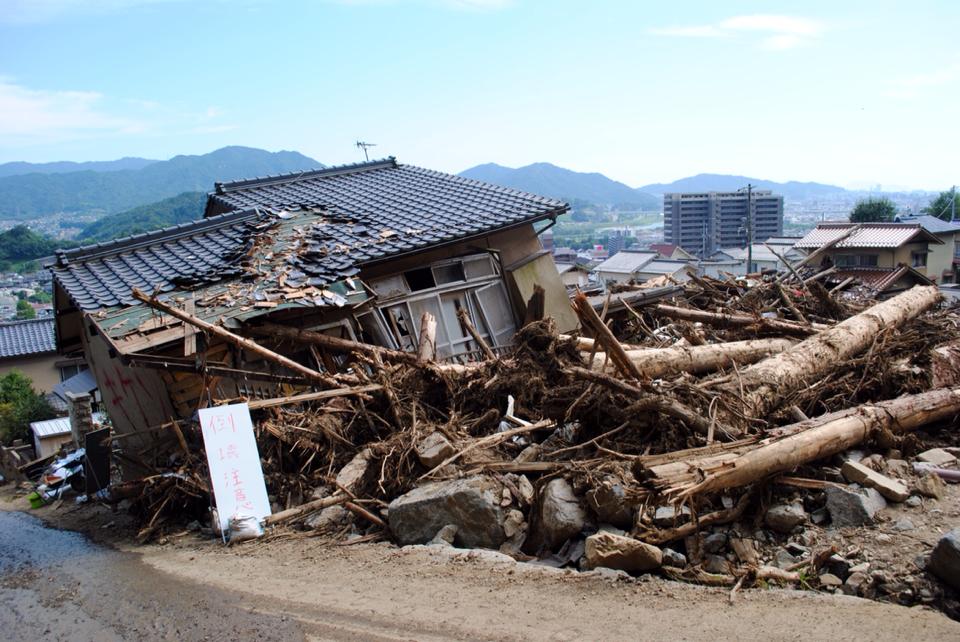
Activity Reports
Hiroshima Landslide Relief Update
September 14, 2014
Three weeks on from the disaster in Hiroshima, the situation is still severe; hundreds remain in emergency shelters, neighborhoods have sustained major damage, and the search for the missing continues.
In the hours and days following the landslides on August 20th, the race was on to minimize loss of life and provide basic necessities to those in need. Over 1000 residents sought refuge in emergency shelters in the immediate aftermath of the disaster as persistent rainfall threatened to trigger secondary or tertiary landslides.
Despite these testing conditions on the ground, hundreds of volunteers are still willing to contribute their time and energy to help. 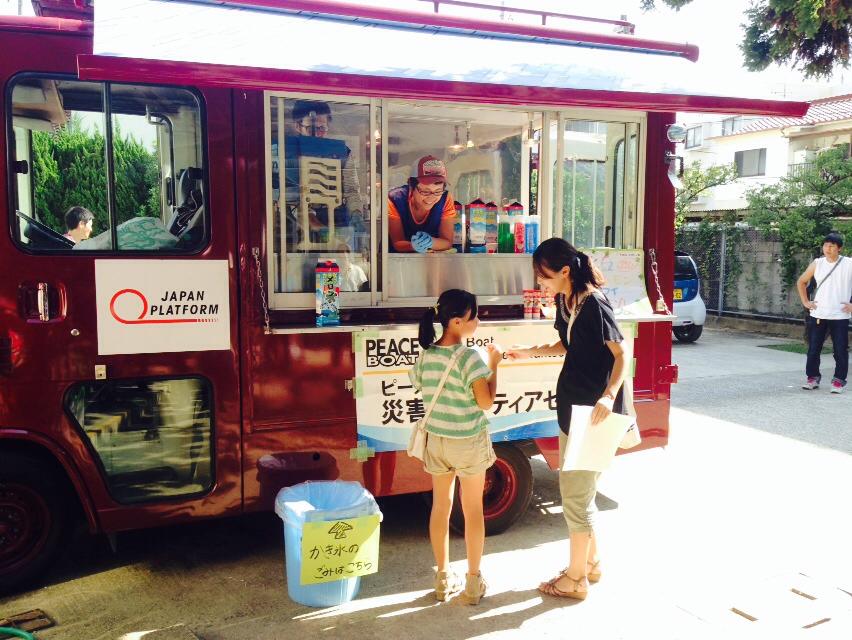
In Asaminami and Asakita wards, volunteers have been helping local residents with cleaning their homes. Clearing buildings of mud and debris is often a very time-consuming, energy-intensive and potentially dangerous process, and so volunteers provide vital assistance by lessening these kinds of burdens for local homeowners.
PBV’s staff and experienced volunteers have been in the area for over two weeks now.
Currently, our main relief activities are:
- Supporting affected communities through the “Kitchen Car” project
- Assisting with the management and coordination of local Disaster Volunteer Centers and serving as team leads in the field.
PBV staff and affiliated volunteers are able to leverage their experience to help the smooth running and coordination of the Disaster Volunteer Centers. Specifically, PBV is helping with needs assessments, volunteer intake procedures and dispatching adequately equipped teams to where they need to be.
Given the number of risks and hazards in the work sites, it is paramount that all volunteers in the field act in a safe and responsible manner. PBV has trained thousands of volunteers and volunteer leaders in field safety, risk management and other useful skills through the “Disaster Relief Volunteer Training” program. Having graduates of the training program and knowledgeable PBV staff on-site helps to ensure that relief activities are carried out effectively and safely.
Supporting evacuees, however, requires a different approach, as most immediate needs (such as food, water and shelter) have largely been met. The kind of support required for affected families is more complex, given the potential long-term impacts of the disaster.
Through the Kitchen Car project, PBV provides a safe environment for local residents to gather, eat and talk about the issues they are facing.
If residents mention any special needs or request help during these conversations, PBV can then work with the individual and refer their cases to relevant groups who can provide assistance. In this way, the Kitchen Car project serves to connect people in need with available resources and services.
Many community members also find it therapeutic to talk about their emotions, fears and anxieties since the disaster, and so providing this sort of neutral space to interact with others can have a major impact on psychosocial well-being. Simply having someone to sit with you and listen to your story can provide immense release for those dealing with post-disaster stress and anxiety.
This kind of kokoro-no-care (care for the heart) will continue to be a vital part of the community healing process.
As the extent and nature of the long-term human, social and environmental costs of this disaster become increasingly clear, PBV will continue to collaborate with key stakeholder groups and assist local communities as they rebuild their lives.
We would truly appreciate your support as we continue to provide relief to affected communities in Hiroshima.
Please donate via the links below:
ENGLISH-LANGUAGE DONATION PAGE
JAPANESE-LANGUAGE DONATION PAGE
Thank you for your continued support and generosity.




